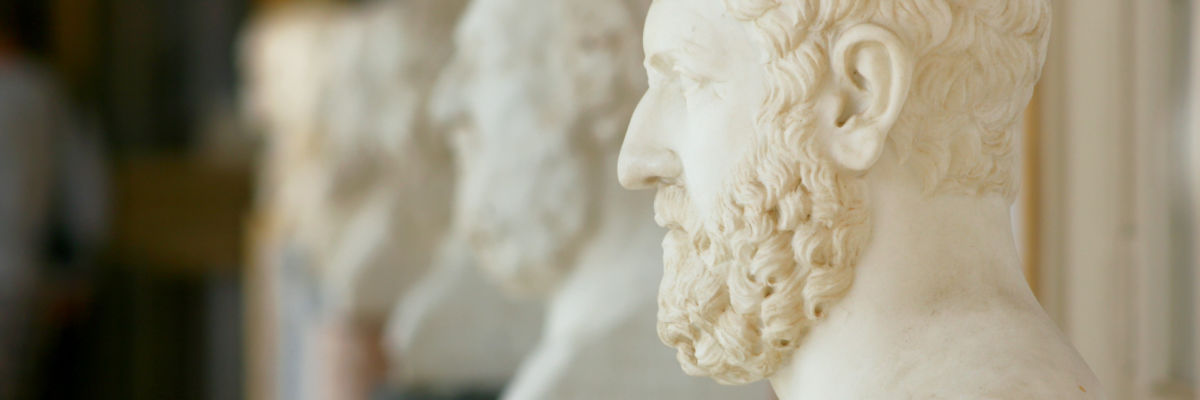
On Christmas Day 800, a Roman emperor was crowned by Pope St. Leo III (r. 795-816) at Old St. Peter’s Basilica in Rome. His dominion included modern-day France, northern Italy, and parts of western Germany. The various peoples in these lands bent the knee to one man: Charlemagne (748-814). When ruling, Charlemagne drew cultural inspirations from Roman late antiquity in areas like literature, architecture, music, customs, and he ushered a cultural shift in Europe known as the Carolingian Renaissance.
Although this revival of classical culture was not as widespread as the later fifteenth-century Italian Renaissance, it nonetheless showed that Greco-Roman culture was still in medieval Europeans’ consciences. Charlemagne owed much of this renaissance to the revolutionary education reforms made by Alcuin of York, a member of the king’s royal court, who ensured that the classical mode of learning would not be forgotten.
The scholar Alcuin (735-804) was born in York, in the Northumbrian kingdom on the British Isles, and was one of the most sought-after intellectuals in Europe. He was trained in not only theology, but also philosophy, mathematics, rhetoric, and astronomy by the works of Venerable Bede. In addition to the classical education he received, Alcuin was ordained a deacon to serve the Church. His talent and range of knowledge grabbed the attention of Charlemagne, then king of Francia (modern-day France), who invited Alcuin to his court as part of the king’s education revival.
Upon arriving in Francia, Alcuin made such an impression on Charlemagne that the king requested that the scholar tutor him on subjects such as theology, rhetoric, dialect, and astronomy. Additionally, Charlemagne charged Alcuin with training the Frankish clergy and accurately translating ancient literature. However, the most notable achievement by Alcuin was his development of the curriculum for the palace school at Aachen, which formalized the subjects of the liberal arts in education.
These classical modes of learning, which we today call the liberal arts, can be identified into two groups: the trivium and quadrivium. It follows a pattern in which the principles of the trivium are taught in order before advancing to the principles of the quadrivium. For the trivium, you begin with grammar and logic and then finish with rhetoric. After mastering the ability to speak precisely, then you study the quadrivium, which contained arithmetic, geometry, music, and astronomy. Combining all of them formed the seven liberal arts, which served as the foundation before studying subjects such as theology and medicine. While these reforms did not originate with Alcuin, he nonetheless popularized the liberal arts and paved the way for the later creation of the universities by the Church in the twelfth and thirteenth centuries.
Alcuin was in contact with many influential persons while working in the royal court. One nobleman approached Alcuin with a spiritual problem: he feared that working in the secular world compromised his salvation. Alcuin encouraged the nobleman to embrace “true philosophy” at the end of each day by spiritual reading with the hope of acquiring wisdom. Alcuin counseled many other nobles to help them prioritize eternity without abandoning their worldly responsibilities.
Alcuin also played a significant role in Charlemagne’s domestic policy. As the Frankish kingdom absorbed new territories, it also absorbed new people who did not practice the Christian faith, such as the Saxons, who sometimes practiced human sacrifice and cannibalism. Charlemagne forcibly converted these pagans to the Faith and even instituted the death penalty for practicing paganism. But Alcuin disagreed with forced conversion. In a letter to Charlemagne, he wrote, “You can persuade a man to believe, but you cannot force him. You can haul him to the waters of baptism but not to faith itself.”
Alcuin insisted that rather than conducting evangelization with the sword, the king—in high esteem and praised him for “leading so many from the paths of error into the way of truth”—should focus on catechesis instead. Due to Alcuin’s counsel, Charlemagne shifted his domestic policy and no longer legally punished those who practiced paganism.
After serving the Frankish court for sixteen years, Alcuin retired to the Marmoutier Abbey in Tours. Charlemagne appointed Alcuin abbot, and he lived the rest of his life in prayer and work. He wrote many of his works during this time, such as his famous biblical commentary on the book of Genesis, Quaestiones in Genesim. He is often quoted as saying, “Remember to care for the soul more than the body, since the former remains, the latter perishes.” Alcuin died in 804, four years after Pope St. Leo III crowned Charlemagne emperor of the Romans and established the Holy Roman Empire.
Alcuin’s role in history cannot be overstated. Without his relationship with such an important political figure like Charlemagne, and his influence on the nobles and clergy of the royal court, it is difficult to conclude that the study of philosophy could have thrived in medieval Europe.
Essentially, the dominating intellectual view proposed that philosophy was of lesser value than Sacred Scripture and Sacred Tradition; therefore, it should not be a Christian’s priority to study Plato, Aristotle, or Virgil. Alcuin differed from this traditional approach by incorporating philosophy into his education reforms, though he agreed that theology was the highest-priority subject. For Alcuin, ancient philosophy was important, but “true philosophy” combined Christian revelation with the classical mode of thinking.
Alcuin ensured that the philosophical classics were to survive and remain in the consciousness of medieval Christians. Moreover, he radically changed the purpose of philosophy in education. Before the medieval age, philosophy was a way to explain the world without using the pagan religions or myths, but in Alcuin’s curriculum, philosophy was subject to Christian revelation and considered an important tool to assist humanity in learning about the world God created.
Though he is not a canonized saint, Alcuin displayed saint-like qualities with his love for God and his love for the world through his educational reforms. He serves as a shining example that medieval rulers sought to unite the continent under the Christian banner while remembering the past through classical learning.



